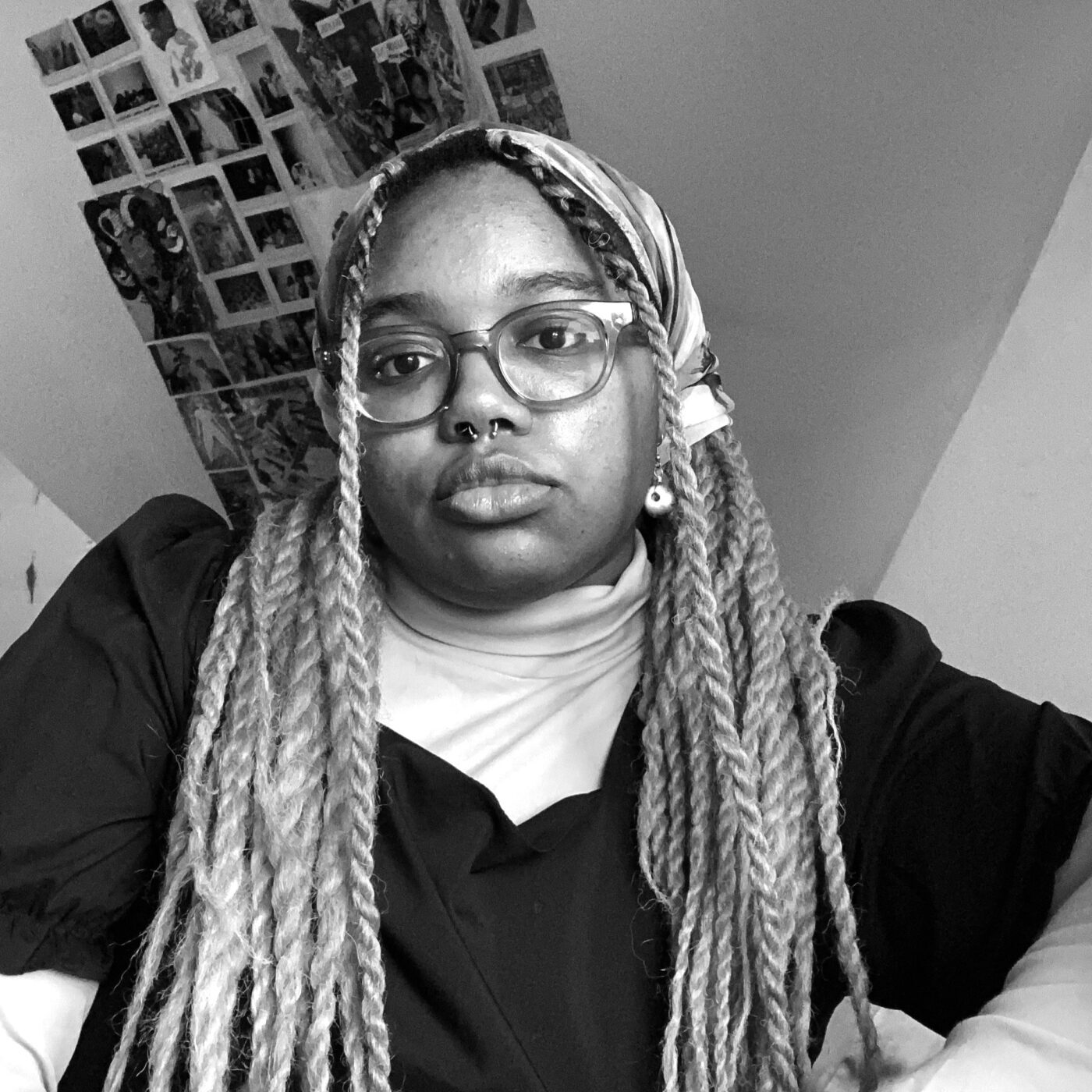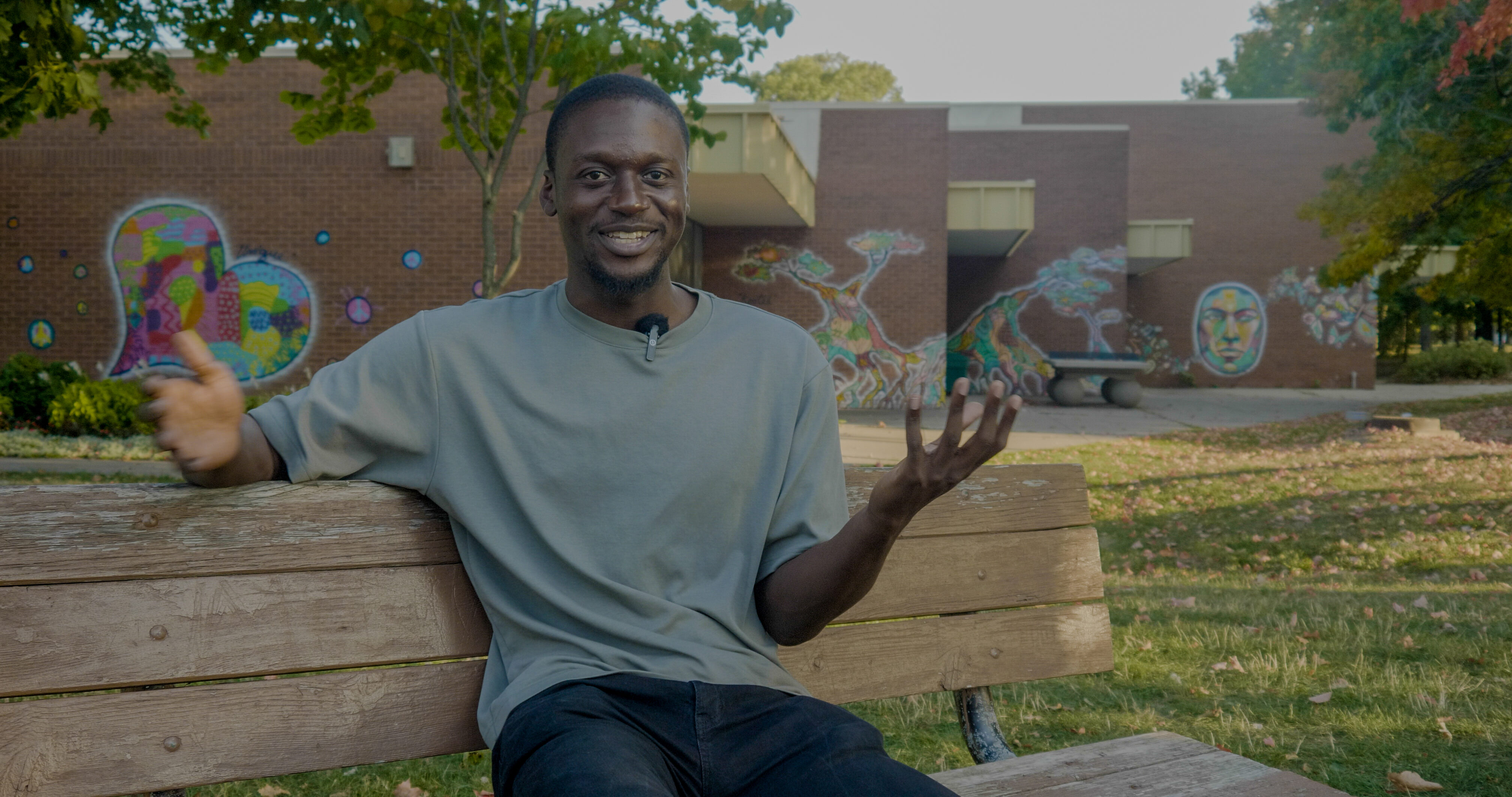THE GREEN LINE'S
CHANGEMAKER INTERVIEW
Let's talk therapy in Toronto with Kate Scowen
For one of our Changemakers newsletters, we spoke with Kate Scowen about the lessons she’s learned through her work at Hard Feelings, a community hub offering accessible, low-cost therapy.

A PORTRAIT OF KATE SCOWEN, FOUNDER AND EXECUTIVE DIRECTOR OF HARD FEELINGS.
📸: HARD FEELINGS.

Adele Lukusa
A graduate of TMU, Kitchener native enamoured with Toronto and lover of Jamila Woods. Currently working on supporting mutual aid efforts and unpacking the nuances of Black haircare.
Feb. 7, 2024
How do we de-stigmatize mental health?
That's one issue that Hard Feelings, a charity offering low-cost counselling and mental health resources, tries to solve.
As an undergrad at the Toronto Metropolitan University, the Hard Feelings storefront on 353 Church St. was my haven. I had a place to sit and sip tea, read zines and listen to Daniel Caeser’s “Japanese Denim” float over the speakers before unloading it all in my therapist’s office.
I spoke with Kate Scowen, the founder of Hard Feelings about how the charity breaks down barriers for folks to access therapy and mental health support.
Hard Feelings has a very unique model — it works as a storefront and community hub, and offers low-cost counselling services. How did that come to be?
| My background is in youth and community work, and I'd worked in that sector for a long time, and then I went back to school to do my master of social work. I knew that I wanted to have a private practice and work in the sector as a therapist, but I needed, obviously, to get that degree. So I did that. While I was studying, I started to think about barriers to access — having worked with so many individuals, youth and families who needed therapy, who couldn't access therapy in free, publicly funded pathways because the waitlists were so long or it felt too medicalized, too pathologized, and not very community-centred or friendly.
I was working at the time in my practicum and post-graduation at TMU in the counselling centre, so students at that time had like $500 worth of benefits, but you couldn't do much with it. You could maybe get one or two sessions of market-rate therapy and there was all this wait time. So I was like: What if you thought about those benefits as a kind of an income pot? So, we started our original model with rates of $50 to $80 per session. We were seeing a lot of students at the $50 session where they could have 10 sessions or 12 sessions of therapy. That storefront idea was really about how do we de-stigmatize mental health? How do we create spaces where we're having conversations about mental health where it's not a hospital setting? I knew I didn't want to practice on the third floor of a medical building by myself. I wanted community. |

HARD FEELINGS’ COMMUNITY-BASED RETAIL STOREFRONT NEAR GERRARD ST. E. AND CHURCH ST.
📸: HARD FEELINGS.
I think that community aspect especially is what makes Hard Feelings stand out from other mental health spaces in the city. It is so uniquely GTA-focused, from the art to the books and zines. How did that come into play?
| So, in the early days, we had a social enterprise manager who would sort of oversee the store, and I was overseeing the practice and the counselling. In those roles, those folks built really great relationships with our community members. They would come to me and say, “Hey, this person dropped off this zine. I think we should carry it in the store.” So, it was a lot of work done by the folks in our community and parts of our team. Also, some of the counsellors in our community are artists — so Heidi Cho who's a ceramicist who’s been part of our practice for a long time.
Our birthday is September 12th, so we do an event every fall. And we had a Canada Summer Jobs grant to hire someone and we talked about doing an event. It was our Summer Jobs staff who said, “Let's do a mental health pop-up market; let's bring in vendors.” And I said, “That's great as long as their work intersects with mental health.” So, we've had our fifth mental health pop-up market this fall for our birthday. We did it twice in the store, twice at Christie Pits and once in our new location, and it's a really lovely way to bring artists and vendors together. Through our new store manager Stacey, we were talking about: How do we think about what we want to carry in the store? There are so many amazing and unique vendors in the GTA. Why are we ordering anything from anywhere else, right? |
|
|
|
|
Fact-Check Yourself
Sources and
further reading
Don't take our word for it —
check our sources for yourself.
Care about our city, but don't know how to make it better? Sign up for simple, step-by-step guides to solving problems in your neighbourhood — one small action at a time.
